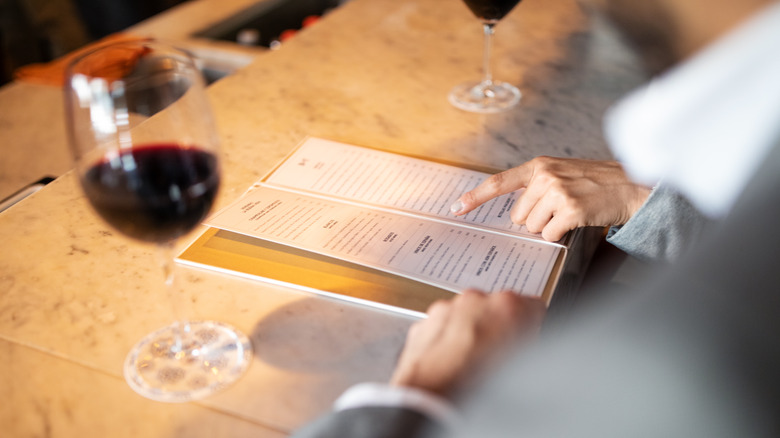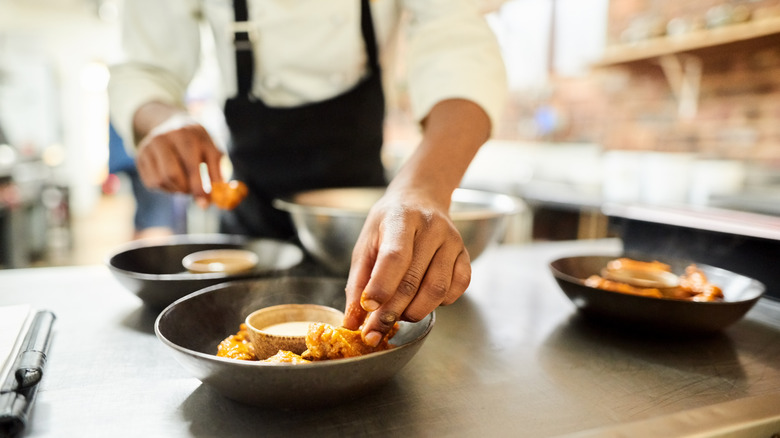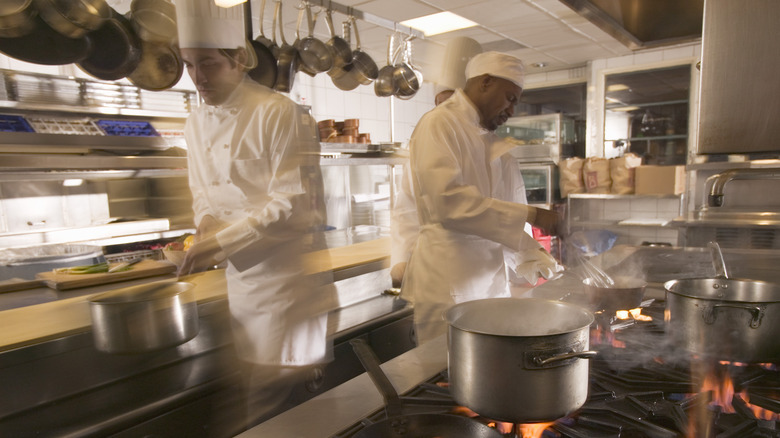How To Ask For Substitutions At A Restaurant Without Being Rude
Sometimes you go to a restaurant and everything on the menu looks good. But every once in a while you might find yourself at a place where the one thing you really want includes something you're not a huge fan of. Perhaps you can't handle the heat of the jalapenos, or maybe you're the type of person who thinks cilantro tastes like soap. Whatever the case may be, your first thought is probably to ask for a substitution. The question is, how do you go about it without sounding rude?
For starters, you'll want to phrase your request as an actual question, not a direct order. Most cooks don't mind fulfilling special requests as long as the ingredients are available. Sometimes they simply aren't, so it comes across as inconsiderate if you just expect your order to be made a certain way instead of asking whether or not it's even possible for the cooks to make a certain substation. If your request is fairly simple, this shouldn't be a problem, but the more substitutions you make per meal, the more rude it's considered to be.
What if you have food allergies?
If you have food allergies and are worried that asking for a substitution is rude, don't be. According to a survey conducted by the CDC, restaurant workers typically have no problem making substitutions if a food allergy is the reason. Restaurants in certain states are also legally required to give their staff food allergy training and have a manager whose job is to enforce it, according to the organization Food Allergy Research and Education.
It's considered rude, however, if you claim to have a food allergy that you don't really have in order to request a substitution that wouldn't otherwise be fulfilled. This is a common enough occurrence that cooks can pretty easily determine whether it's a legit allergy or not. Often customers will claim they are allergic to gluten if they don't want bread, but have no issue eating something like pasta. Doing something like this is incredibly rude (as well as dishonest) because the orderer likely knows that ignoring a food allergy request — even a fake one — would be a legal liability for the restaurant.
When it isn't appropriate to ask for substitutions
With the exception of (real) food allergies, there are certain occasions where it's best to avoid asking for a substitution at all. The main one is when the restaurant is extremely busy. A small substitution that can be easily made on a slow service day might completely throw off a chef's flow during a busy one.
The type of restaurant you're dining at is also a factor. If it's not a chain and is instead a more upscale place where the dishes are designed to be enjoyed in a certain way with certain ingredients, substitutions are seen as rude, as they often affect the entire flavor profile of a dish.
It's also important to give some thought to the price of what you're substituting. For example, a restaurant may honor your request to give you oxtail instead of beef in a dish but plan to pay extra. Asking or expecting to not be charged extra in a case like this is when it becomes rude since the substituted item is much more expensive. Just like any request for an ingredient swap consider how it will affect the business itself; if your substitution doesn't disrupt the flow service or cost the restaurant more time or money to make, staff are often willing to make the change. And make sure to ask politely too!


